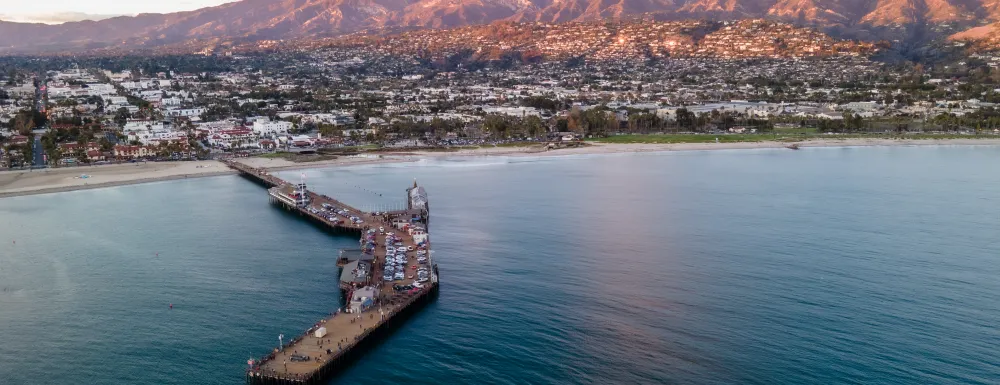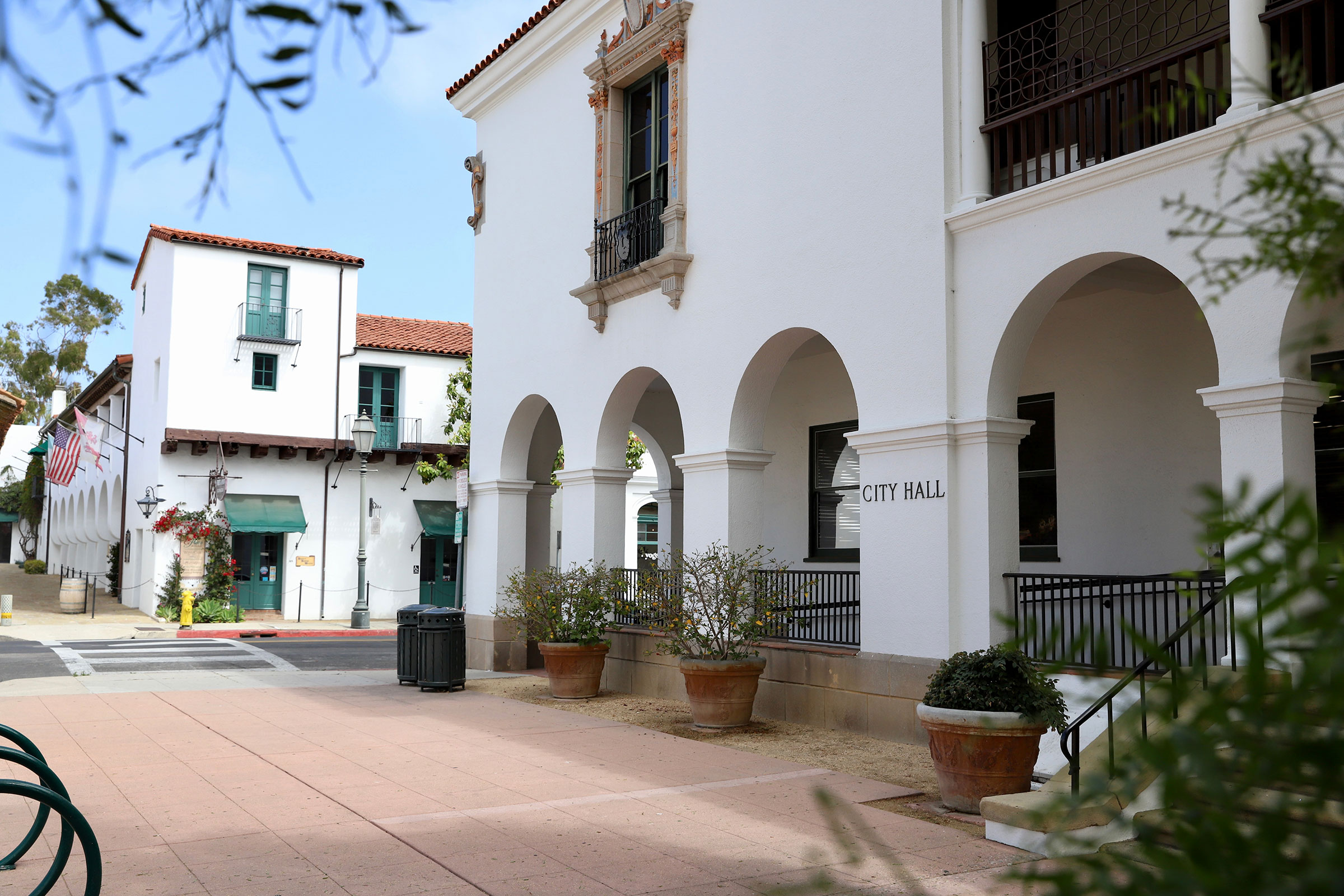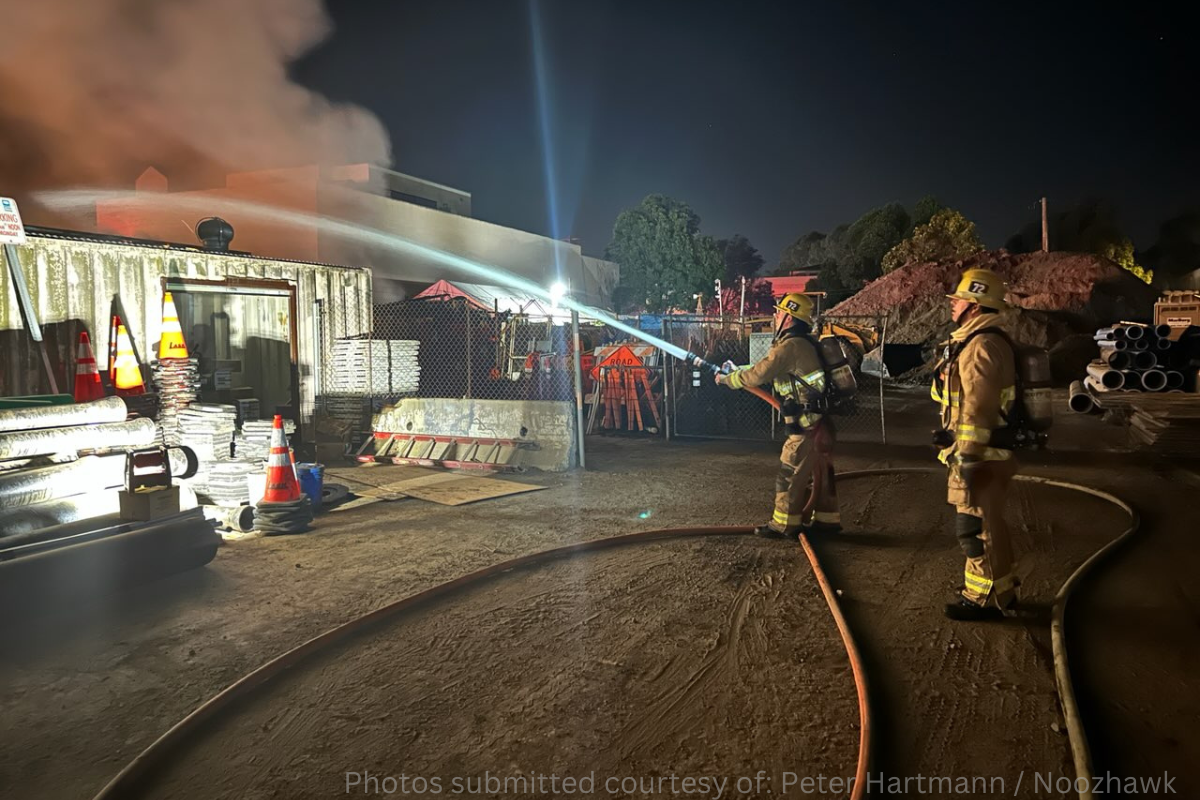All library branches will open at noon on Wednesday, February 4, 2026 due to staff training.

Essential SB
The City of Santa Barbara is committed to providing essential City services, maintaining public safety, and protecting the quality of life of all our residents. This webpage is devoted to educating the community about the specific challenges facing the City, and to gather feedback on community priorities for future budget years.
Maintaining Essential City Services
Like many California cities, the increasing cost of maintaining services continues to exceed projected revenues, and despite aggressive efforts to balance the budget, the City is projected to face a structural budget deficit anticipated to grow to 5-7% ($11M–$15M) of the General Fund within the next 3 years. This section is designed to help residents understand more about the essential services the City provides, and some of the challenges in maintaining them.
Prior to COVID and 2020, the City did not have to take substantial measures to balance its budget. The rapid and substantial decline of the City’s sales tax and Hotel (TOT) revenues during COVID however cost the City $30 million in revenue across all funds. Of this, the impact to the General Fund, which provides funding for essential city services like public safety, was over $20 million, or more than 10%.

Even with emergency relief funding, the City was still forced to take additional steps to control and reduce costs by nearly eliminating all hourly employees, delaying projects, and reducing services. Some examples of this have been reducing staff or not filling open positions in nearly all City departments – including Public Safety. The City has cut nearly all hourly employees and over 130,000 hours of work in the Parks and Recreation Department, reduced the Library’s operating hours and other measures. Overall, the current Fiscal Year’s budget required a 2% permanent expenditure reduction for all General Fund operating departments.
Santa Barbara is a full service City, with its own police, fire and emergency medical response personnel. Demands for these emergency services in Santa Barbara are growing and on average each year the City’s Public Safety Departments respond to 48,814 calls for service. In 2022, 70%+ of calls for service were medical emergencies, and 20% were related to rising homelessness. The City’s Fire Department has already had to mitigate the impact of budget and staffing reductions while calls for fire service steadily increased by 5% annually.

Further Budget Challenges to these Departments Could Mean:
- Slower response times for 911 Police/Fire emergency response.
- Fewer on-duty firefighters to respond to emergencies and fewer on-duty police officers for neighborhood patrols.
- Challenges keeping neighborhood fire stations open and staffed.
- Challenges to recruitment and retention of the City’s Police Officers, Firefighters, and Emergency Medical Technicians.
- Reduced capacity for emergency planning, disaster preparedness and coastal protection.
Improving housing affordability is a high priority for the City. The City partners with non-profit agencies and others to support affordable housing policies and programs and is considering new programs to increase the supply of housing for veterans, essential workers and other families struggling to afford to live in our City. Additionally, the City Council launched a citywide short-term rental enforcement program to ensure compliance with City regulations and make rental units available again to long-term city residents.
The City of Santa Barbara is 173 years old and has aging infrastructure which needs to be repaired and upgraded. Even before recent rainstorms which have damaged roads, independent road engineers have recently found that nearly 30% of our local City streets are in poor or very poor condition. Many of the City’s bridges are over 100 years old.
The City also has community centers, fire and police stations, swimming pools, libraries to maintain, and many of these facilities in need of essential health and safety repairs. The projected deficit could mean further delays to necessary repairs and deferred maintenance of this aging infrastructure.
Further Budget Challenges Could Mean:
- Reduced or delayed repairs to streets and potholes
- Reduced or delayed repairs to sidewalks and curbs for pedestrian safety and safe routes to school
- Reduced maintenance of local parks that provide safe places for children to play
- Reduced library hours and programs
General Fund Multi-Year Forecast
The City’s General Fund, which pays for many of its core services like police, fire, emergency medical response, parks, libraries, street repairs as well as other services and infrastructure operates on an annual budget of approximately $201 Million. The operating deficit in Fiscal Year 2024 is $3.8 Million, and in 2025 the deficit grows to $7.1 Million. For this year, City departments have identified $2.7 Million of expenditure reductions to help balance the budget. The rest of the shortfall is covered by the City’s reserves. To learn more about the City's budget, please visit Budget & Reporting.
The City has worked for years, even prior to COVID, to manage its finances and stretch its existing revenues. All City Departments have made reductions. Many or most have staff vacancies, including many in public safety. Prior to COVID and 2020, the City did not have to take substantial measures to balance its budget. However, with COVID, the City’s Sales Tax and Hotel (TOT) Taxes declined substantially, and overnight – across all funds the City has lost over $30 Million since 2019. The City was able to control and reduce costs by nearly eliminating all hourly employees, delaying projects, and reducing services. For some perspective, this has eliminated over 130,000 hours of work in the Parks and Rec Department – equal to roughly 60 workers. It has additionally impacted lifeguards, forced the library to close for 36 hours each week, and other items.
There are as many as 1,000 people experiencing homelessness in Santa Barbara on any given night, including veterans, seniors, and families with young children. The City is working every day to help individuals access critical services, emergency shelter, and housing. This includes mental health support, substance abuse treatment services, and job training to help people transition away from or stay off the street, as well as to ensure our business districts, parks, and other public areas are safe for everyone.
The rising demands for emergency response – growing by thousands of calls each and every year – has placed increasing pressure on the City’s first responders, who are far fewer in number than they were a decade ago. A 5% budget reduction would mean: slower response times for 911 Police/Fire emergency response, fewer on-duty police officers, fewer on-duty firefighters, and additional challenges to recruit and retain personnel.
The City has a high priority on addressing the on-going housing challenges. We partner with non-profit agencies and others to support affordable housing policies and programs. The Council has passed a Citywide Short-Term Rental Enforcement Program to ensure compliance with City regulations and make rental units available again to long-term city residents. Additionally, the City Council created a Local Housing Trust Fund to support the production of new affordable housing units and the preservation and rehabilitation of existing low-income housing.
The City of Santa Barbara is 173 years old and has aging infrastructure which needs to be repaired and upgraded. Even before recent rain storms which have damaged roads, independent road engineers have recently found that nearly 30% of our local city streets are in poor or very poor condition. The City also has community centers, fire and police stations, swimming pools, libraries to maintain, and and in need of essential health and safety repairs. The projected deficit will mean further delays to necessary repairs and deferred maintenance of this aging infrastructure.
Visitors and those who work in Santa Barbara contribute to maintaining our City’s public safety and infrastructure whenever they shop in Santa Barbara or patronize local establishments. Nearly half of sales tax dollars collected in Santa Barbara come from tourists and visitors from surrounding areas.
Community Outreach
- Downtown Santa Barbara (BID), 10/10/23
- The Riviera Association – Santa Barbara, 10/22/23
- SB Library Foundation, 10/26/23 (Zoom)
- Santa Barbara Housing Authority, 11/1/23
- Our Mesa Neighborhood Inc. “OMNI”, 11/9/23
- Library Board, 11/9/23
- Parks & Rec. Commission, 11/15/23
- Community Environmental Council, 11/16/23 (Zoom)
- Visit Santa Barbara, 11/28/23
- SB South Coast Chamber of Commerce, 11/25/23
- SB Foundation, 12/4/23
- Realtors Association, 12/6/23
- SB League of Women Voters, 12/6/23 (Zoom)
- Concerned California, 12/13/23
- Santa Barbara Elks Lodge, 2/29/24
- Independent Living Resource Center, 4/3/24
- Community Townhall at Valle Verde, 4/29/24 (Eng/Spa)
- Community Townhall at Peabody Charter, 5/2/24 (Eng/Spa)
- Community Townhall at Franklin Community Center, 5/4/24 (Eng/Spa)
- Community Townhall at Monroe Elementary School, 5/6/24 (Eng/Spa)
- Community Townhall at Harding School, 5/8/24 (Eng/Spa)
- Community Townhall at Carrillo Recreation Center, 5/10/24 (Eng/Spa)
- Visit Santa Barbara, 5/16/24

What’s Next?
In addition to the issues detailed above, the City’s projected deficit would greatly impact the City’s ability to address a host of other items, like homelessness, housing affordability, providing programs for youth and seniors, and preparation for the impacts of extreme weather.
